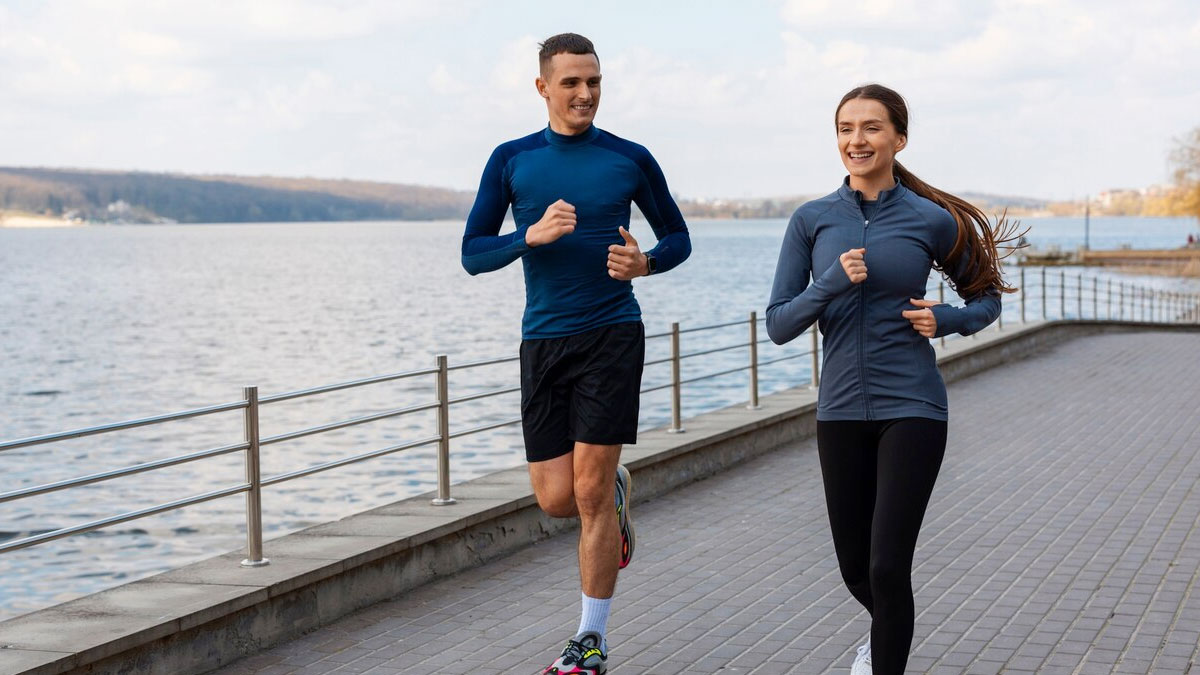If you haven’t known by now, cannabidiol (CBD) has emerged as a popular wellness trend, touted for its potential benefits in various aspects of health. One area where CBD has gained significant attention is fitness. As more people seek natural alternatives to enhance their workout routines, CBD has become a subject of interest due to its purported ability to aid in recovery, reduce inflammation, and improve overall performance. In this article, we’ll explore the intriguing relationship between CBD and fitness, delving into its potential benefits and practical considerations for integrating it into your workout regimen.
Understanding CBD
CBD, short for cannabidiol, is a compound derived from the cannabis plant. Unlike its counterpart tetrahydrocannabinol (THC), CBD is non-psychoactive, meaning it doesn’t induce a “high” sensation. This distinction makes CBD appealing to individuals seeking the potential health benefits of cannabis without the mind-altering effects associated with THC. CBD is commonly available in various forms, including CBD oils, capsules, edibles, topicals, and more, catering to different preferences and needs.
The Endocannabinoid System (ECS) and Exercise
To comprehend how CBD interacts with the body during exercise, it’s essential to understand the endocannabinoid system (ECS). The ECS is a complex network of receptors and neurotransmitters found throughout the body, regulating various physiological processes such as mood, appetite, pain sensation, and inflammation. Exercise has been shown to modulate the ECS, influencing its activity and potentially enhancing its function. This interaction forms the basis for the potential synergy between CBD and fitness, as CBD may further modulate the ECS’s activity, contributing to its effects on exercise performance and recovery.
Benefits of CBD in Fitness
CBD offers several potential benefits that can complement a fitness routine:
- Pain management and recovery: CBD has been studied for its analgesic properties, with research suggesting its potential to alleviate exercise-induced pain and promote faster recovery from workouts.
- Reduction of inflammation: Inflammation is a natural response to exercise-induced muscle damage, but excessive inflammation can impede recovery and hinder performance. CBD’s anti-inflammatory properties may help mitigate exercise-induced inflammation, supporting faster recovery and improved performance.
- Stress and anxiety relief: Exercise is a known stress reliever, but some individuals may experience anxiety or stress-related symptoms before or during workouts. CBD’s anxiolytic effects may help reduce pre-workout jitters and promote a calmer, more focused mindset during exercise.
- Improved sleep quality: Quality sleep is crucial for recovery and overall well-being, yet many individuals struggle with sleep disturbances, especially after intense workouts. CBD has been studied for its potential to improve sleep quality and duration, which can further support recovery and performance.
- Potential enhancement of performance and focus: Some anecdotal evidence suggests that CBD may enhance focus and concentration, potentially benefiting athletes and fitness enthusiasts during training sessions or competitions.
Incorporating CBD into Your Workout Routine
Integrating CBD into your workout routine requires careful consideration and personalized approach:
- Consultation with a healthcare professional: Before incorporating CBD into your fitness regimen, it’s advisable to consult with a healthcare professional, especially if you have underlying health conditions or are taking medications.
- Finding the right dosage and product: CBD dosage can vary depending on factors such as body weight, metabolism, and individual response. Start with a low dose and gradually increase until you achieve the desired effects. Experiment with different CBD products to find what works best for you.
- Pre-workout vs. post-workout consumption: The timing of CBD consumption may influence its effects on exercise performance and recovery. Some individuals prefer taking CBD before a workout to reduce pre-exercise anxiety or discomfort, while others find it more beneficial post-workout to aid in recovery and relaxation.
- Considerations for different types of workouts: The effects of CBD may vary depending on the type of workout and individual preferences. For example, endurance athletes may benefit from CBD’s anti-inflammatory properties, while weightlifters may find relief from post-workout soreness and stiffness.
Risks and Considerations
While CBD holds promise as a supplement for fitness enthusiasts, it’s essential to be aware of potential risks and considerations:
- Potential side effects: Although CBD is generally well-tolerated, some individuals may experience side effects such as dry mouth, dizziness, or changes in appetite. Monitor your body’s response and discontinue use if adverse effects occur.
- Drug interactions and precautions: CBD may interact with certain medications, particularly those metabolized by the liver. If you’re taking prescription medications, consult with your healthcare provider before using CBD to avoid potential interactions.
- Regulatory concerns and quality control: The CBD market is largely unregulated, leading to variability in product quality and consistency. Look for reputable brands that prioritize quality control and provide third-party lab testing results to ensure product safety and potency.
Conclusion
CBD has emerged as a potential adjunct to traditional fitness regimens, offering a natural alternative to support recovery, reduce inflammation, and enhance performance. While research on CBD’s effects in the context of exercise is still evolving, anecdotal evidence and preliminary studies suggest promising benefits. By understanding the potential role of CBD in fitness and adopting a personalized approach to supplementation, individuals can explore its potential benefits and optimize their workout routines.
Ready to amp up your workout routines with organic CBD oil in Canada? Shop now at CBDMagic today!


